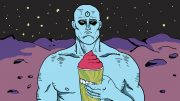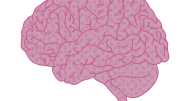Bad driving — damn genetics!
Researchers at the University of California, Irvine have discovered that people with a genetic variation may be predisposed to being bad drivers.
The gene variation in question reduces the amount of brain-derived neurotrophic factor (BDNF) present in the brain during activity. Normally BDNF stimulates brain activity and keeps memory strong by supporting cell-to-cell communication, however in individuals with this variation the amount of brain stimulation is reduced during activity, such as driving.
Stephanie McHughen, the lead author of the study, explains that 29 individuals — 22 without the variation, and seven with — were put in a driving simulator and asked to drive 15 laps of a difficult course. Four days later the same individuals were asked to repeat the experiment. She found that people with the variation did 20 per cent worse than those without, and remembered less of the course four days later.
While the study did not look into why this variation exists, it has been noted that individuals who carry it are less susceptible to cognitive degradation from diseases such as multiple sclerosis, Huntington’s and Parkinson’s.
Steven Cramer, the studies senior author, notes that while a commercial test to determine if an individual carries the BDNF gene variation is not available, it would be very interesting to see if car crashes involve a disproportionate amount of the one third of Americans who carry it.
Black holes: not just for supernovas anymore
It seems that for those who fear the eventual destruction of our planet at the hands of a black hole are having a bumper year in 2009. In addition to the startup of the large hadron colider in Europe — whose detractors have erroneously claimed will create microscopic black holes capable of killing us all — a group of scientists in China, using research from Purdue University in Indiana, have built a machine capable of sucking in microwaves.
While microwaves are not a form of visible light, the Chinese researchers are confident that their “microwave black hole” can be adapted to capture the electromagnetic radiation, which falls into the visible light part of the spectrum, before the end of 2009.
The machine, which consists of a shell surrounded by concentric rings, works by attracting the “electro” part of electromagnetism by subtly altering the structure of the meta-materials which make up each concentric ring. This gradual change mimics a black hole’s curve in the fabric of space-time, and causes the electromagnetic radiation to curve in toward the core.
Of the potential applications of this technology, the most promising is as a light gathering device for use in solar power systems, allowing even meager amounts of light to be concentrated into significant amounts on a solar cell — that and sucking the planet into a giant singularity.
A better kind of genius: better music recommendations for all
Ever wonder why iTunes’ Genius recommendations never include tiny unheard of bands and are usually stacked toward more big-ticket acts? Like commercial radio, it has to do with popularity. In order for a song to be included in Apple’s Genius list it has to be popular enough to get noticed and bought by the right people. Apple then uses these statistics to form the basis of its genius recommendations.
This means that the scope of the genius list can be terribly narrow if you like smaller, more independent performers, such as local bands, who might not sell their music on iTunes.
A group of electrical engineers at the University of California, San Deigo are looking to create a better form of music recommendation, one that has the ability to analyze a song and form a recommendation.
The program works by a process called computer learning, where users are asked to qualify or assign words or feelings to a song. The computer then takes that data and cross-references it with the song’s digital fingerprint, making the assumption that songs with a similar fingerprint will be qualified similarly by users. This data will allow the project to create recommendations for any song for which they have the digital fingerprint, significantly increasing the scope of their software while simultaneously reducing the amount of data they need to keep on hand, by eliminating the statistics used by software like iTunes.
Wondering if there is a room somewhere full of people listening to music, being observed by people in white lab coats? Actually, in a completely inspired move, the researchers have created a Facebook.com application, where users play mini games against other people to score points. The data from these mini games provides the project with its qualitative data.
Want to play for yourself? You might’ve already; the application is called “herdit.”



